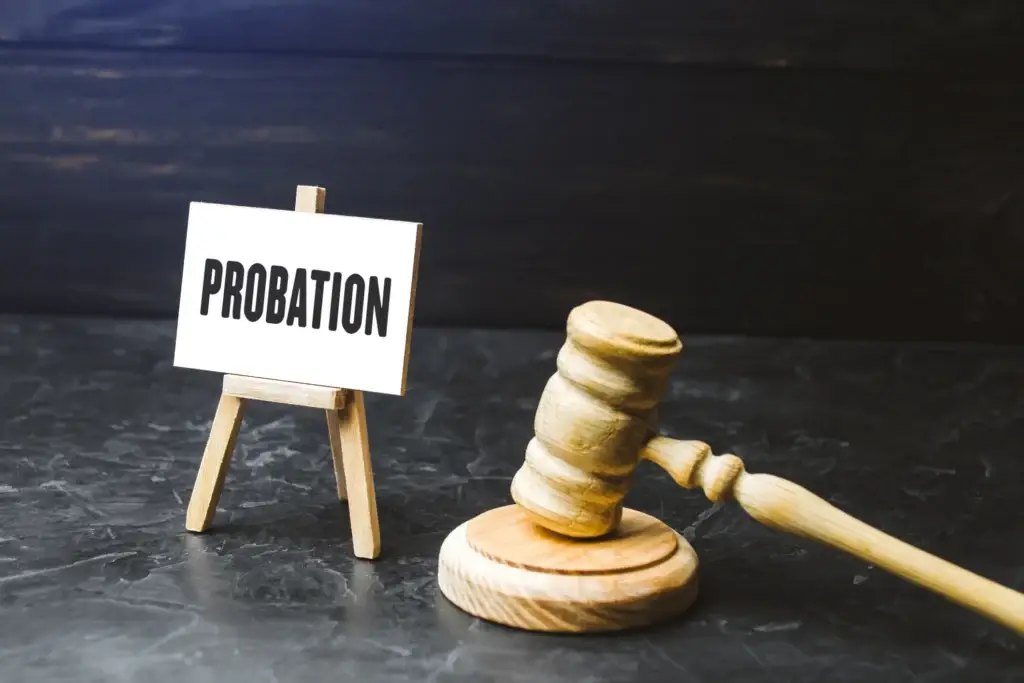April 21, 2025
Your Path to Getting Back on the Road: How Alcohol Awareness Classes Can Help Restore Your Driver’s License After an Offense

Losing your driver’s license due to an alcohol-related offense such as a DUI (Driving Under the Influence) or DWI (Driving While Intoxicated) is a significant and often debilitating consequence. The inability to drive creates immediate logistical challenges, impacting your ability to commute to work, manage family responsibilities, run essential errands, and maintain your independence. Facing a license suspension or revocation is not only stressful but prompts urgent questions about the process for regaining this vital privilege.
Amidst the various requirements imposed by courts and state Departments of Motor Vehicles (DMVs), completing a state-approved alcohol awareness class is consistently a fundamental and mandatory step towards reinstating your driving privileges. But how exactly does an educational program like an alcohol awareness class directly contribute to getting your driver’s license back? What does the process involve, and what should you expect as you navigate the steps towards restoration?
In this comprehensive guide, specifically focused on the topic of “alcohol class license restoration,” we will address all your questions about the crucial relationship between alcohol awareness classes and regaining your driving privileges after an alcohol-related offense. We’ll explain the reasons behind license suspension, clarify why these classes are required, detail exactly how they help in the restoration process, outline the steps involved, highlight the significant benefits of choosing an online program in this context, provide essential tips for success, and clarify exactly what you need to do to regain lawful driving privileges.
For a complete resource on online alcohol awareness classes, including various course types and what to expect, visit our ultimate guide: The Ultimate Guide to Online Alcohol Awareness Classes.
Understanding License Suspension and Revocation for Alcohol-Related Offenses
When someone is charged with or convicted of an alcohol-related driving offense like a DUI or DWI Alcohol Awareness Classes for DUI/DWI Offenders, their driver’s license is typically subject to suspension or revocation. A suspension means your driving privileges are temporarily withdrawn, while a revocation means your license is terminated, requiring you to reapply for a new license after a specified period and fulfill all reinstatement conditions.
Common alcohol-related reasons for license suspension or revocation include:
- DUI (Driving Under the Influence) or DWI (Driving While Intoxicated) conviction or even administrative penalties following an arrest (e.g., for failing or refusing a chemical test).
- Refusal to submit to a legally requested blood alcohol concentration (BAC) test (chemical test refusal often carries its own, sometimes longer, suspension period separate from a conviction).
- Underage drinking and driving offenses, often subject to strict “Zero Tolerance” laws that lead to immediate license action. Guide to Alcohol Awareness Classes for Underage Drinking Offenses discusses this in more detail for minors.
- Repeat alcohol-related traffic offenses or multiple DUI/DWI convictions, which result in significantly longer periods of license loss and more complex reinstatement processes.
The length of your license suspension or revocation is determined by state laws, the specific nature and severity of your offense (e.g., BAC level, presence of minors in the vehicle), any prior driving or criminal history, and potentially your cooperation during legal proceedings. Understanding these factors, typically detailed in official notices from the DMV or court documents, is the first step in determining the specific reinstatement requirements that apply to your case. Alcohol Awareness Courses and Your Driving Record: What You Should Know explains how these offenses impact your permanent driving record.
Consequences of Driving with a Suspended or Revoked License:
Attempting to drive while your license is suspended or revoked due to an alcohol-related offense carries severe additional penalties, often far exceeding those for the original offense. These can include:
- Extended or permanent loss of driving privileges.
- Significantly increased fines and legal penalties.
- Mandatory jail time, even for a first offense of driving while suspended/revoked.
- Increased difficulty and significant delays in eventually reinstating your license.
- Vehicle impoundment.
To avoid these severe consequences, it is absolutely critical to strictly adhere to your license suspension and follow all court and DMV guidelines carefully, including promptly completing requirements like alcohol education classes, before you drive again.
Online courses provide accessible options for individuals living far from physical providers or those with mobility challenges.
Why Alcohol Awareness Classes Are a Mandatory Requirement for License Restoration
Courts and state licensing authorities (DMVs) consistently require individuals who have lost their license due to an alcohol-related offense to complete an approved alcohol awareness class or DUI school as a mandatory part of the license restoration process. This requirement serves several key purposes aimed at public safety and offender accountability:
- Providing Essential Education on Risks and Consequences: The primary goal is to educate offenders on the dangers and far-reaching implications of alcohol misuse, with a specific and crucial emphasis on the severe risks associated with impaired driving. The class provides factual information about how alcohol impairs driving ability, the legal penalties for DUI/DWI, and the potential for causing accidents, injuries, and fatalities. The Science Behind Alcohol Awareness Courses provides the scientific basis for this education. By understanding these risks clearly, participants are intended to be less likely to make the dangerous decision to drive after drinking in the future.
- Meeting a Non-Negotiable Legal Requirement: In most states, completion of an approved alcohol awareness education program is explicitly written into state law or DMV regulations as a mandatory condition for driver’s license reinstatement after an alcohol-related offense. This is a non-negotiable administrative hurdle you must clear; the DMV will not issue you a license until you provide proof of completing the required class.
- Demonstrating Accountability and Commitment to Behavioral Change: Completing a court-ordered or DMV-mandated alcohol awareness class provides tangible evidence to courts, probation officers, and licensing authorities that you are taking responsibility for the actions that led to your license loss and are taking steps to address the underlying behavior. Completing the class is seen as a positive indicator of your willingness to comply with legal requirements and your commitment to making safer choices going forward.
- Contributing to Recidivism Reduction: Alcohol awareness classes are considered an evidence-based intervention designed to reduce the likelihood of individuals repeating alcohol-related offenses, particularly impaired driving. By providing education and strategies for avoiding high-risk situations, these programs contribute to long-term public safety by helping to prevent repeat DUI/DWI incidents. How Alcohol Awareness Classes Can Reduce Recidivism details the effectiveness of these programs in preventing repeat offenses, which directly benefits community safety that the DMV is mandated to protect. Reasons Courts Order Alcohol Awareness Classes provides more context on why courts mandate these classes broadly.
For these reasons, successfully completing your required alcohol awareness class is not just a suggestion; it is a fundamental and often mandatory step in the complex process of regaining your driving privileges after an alcohol-related offense.
How Alcohol Awareness Classes Can Directly Help Restore Your Driver’s License
While an alcohol awareness class doesn’t automatically return your license the moment you finish, successfully completing it is typically one of several crucial mandatory steps you must take for restoring driving privileges after an alcohol-related suspension or revocation. Here’s exactly how these classes directly assist you in getting back on the road legally:
- Fulfills a Mandatory Reinstatement Requirement: The most direct way the class helps is by satisfying a non-negotiable requirement set by your state’s DMV and/or the court. Most states explicitly require you to provide official proof of completing an approved alcohol awareness education program (your certificate of completion) before they will consider reinstating your driver’s license. Without this certificate, your application for reinstatement will be denied, regardless of whether you have met other requirements.
- Provides Required Documentation to the DMV: Upon successful completion of the class, you receive an official certificate. This certificate serves as the specific documentation required by the DMV and potentially the court or probation officer as proof that you have fulfilled the educational mandate. You must submit this certificate as part of your license reinstatement application. Understanding the certificate’s validity period for DMV purposes is important: Alcohol Awareness Class Certification: How Long Is It Valid?
- Demonstrates Accountability and Compliance: By completing the class, you provide tangible evidence to the DMV and courts that you are complying with the conditions placed upon you as a result of your offense. This demonstration of accountability and responsible action is viewed favorably and is necessary for authorities to sign off on your eligibility for license restoration.
- May Facilitate Eligibility for Restricted or Hardship Licenses (Jurisdiction-Specific): In some jurisdictions, completing the required alcohol awareness class promptly during your suspension period may be a factor considered in your eligibility for obtaining a restricted or hardship license sooner. These licenses allow you to drive under limited circumstances (e.g., to work, school, court-ordered programs) before your full driving privileges are restored. Note: This varies significantly by state and offense type, and you must confirm eligibility with your local DMV or court.
- Simplifies the Overall Reinstatement Process: By getting the alcohol awareness class requirement completed and out of the way promptly, you streamline the overall license reinstatement process. This allows you to focus on fulfilling other potentially time-consuming or logistically challenging requirements, such as serving the remainder of your suspension time, paying fines and reinstatement fees Costs of Court-Mandated Alcohol Awareness Classes, installing an Ignition Interlock Device (IID), or completing community service.
In short, the alcohol awareness class certificate is a crucial piece of the puzzle; you cannot complete the license reinstatement process without fulfilling this specific requirement.
Steps to Complete Your Alcohol Awareness Class for License Restoration
To ensure a smooth process and use your alcohol awareness class effectively for license restoration, carefully follow these steps:
- Clarify Your Specific Reinstatement and Class Requirements: Meticulously review your court order, any official notices received from your state’s DMV, or consult with your probation officer or attorney. Identify all the requirements for license reinstatement. Specifically, determine:
- If an alcohol awareness class or DUI school is mandatory for reinstatement.
- The exact required duration of the class (e.g., 4-hour, 8-hour, 12-hour). 8 Hour vs 12 Hour Alcohol Awareness Classes explains these lengths.
- If the course needs to be approved by a specific state agency (like the DMV) or the court itself.
- Any deadlines for completion.
- Choose a State-Approved and Accepted Provider: Select a provider whose alcohol awareness course is explicitly approved by the authority requiring it for license reinstatement in your state (typically the DMV). Do not assume any course is acceptable. Verify the provider’s credentials before enrolling. Use resources like Finding a State-Approved Alcohol Awareness Course Online and How to Verify if an Online Alcohol Awareness Class is Legitimate to confirm legitimacy and approval status for your specific jurisdiction. Courseable, for example, provides court-approved online classes recognized nationwide.
- Enroll and Complete the Course Promptly: Enroll in the approved course as soon as possible after clarifying your requirements. Dedicate consistent time to work through the material, completing all modules and passing any required quizzes or final exams Do Online Alcohol Awareness Classes Include Tests?, What Happens if You Fail an Alcohol Awareness Class? Completing the course promptly gets your certificate in hand sooner, allowing you to move forward with other reinstatement steps without delay. Tips for Successfully Completing Your Alcohol Awareness Class offers advice for successful completion.
- Obtain Your Official Certificate of Completion: Upon successfully finishing all course requirements, obtain your official certificate of completion from the provider. If you choose an online course from a reputable provider like Courseable, the certificate is typically available for immediate digital download, which significantly streamlines the next step.
- Submit Your Certificate Immediately to the Required Authorities: Do not assume the course provider automatically sends your certificate to the DMV or court. In most cases, you are responsible for submitting proof of completion. Confirm the required submission method (mail, online portal, in-person) with your state’s DMV and potentially the court or probation officer. Submit your certificate as soon as you receive it to demonstrate prompt compliance and facilitate the reinstatement process. Keep copies of the certificate for your own records and get confirmation of receipt if possible.
- Fulfill All Other Reinstatement Requirements: Remember that the alcohol awareness class is usually just one piece of the puzzle. You must also meet all other conditions set by the court and the DMV, which may include serving the full length of your suspension or revocation, paying all fines and reinstatement fees, providing proof of required insurance (like SR-22), and potentially installing an Ignition Interlock Device (IID) or retaking driving tests. Contact your state’s DMV to confirm you have met all necessary requirements before expecting your license to be reinstated.
Benefits of Choosing Online Alcohol Awareness Classes for License Restoration
Given that your license is likely suspended, choosing to complete your required alcohol awareness class online offers specific advantages that can significantly streamline the license restoration process:
- Convenience and Flexibility When You Can’t Drive: The most obvious benefit is the ability to complete the course from anywhere with internet access, on your own schedule, without needing transportation to a physical classroom. This flexibility is invaluable when your driving privileges are limited.
- Immediate Certificate Access for Prompt Submission: Meeting DMV deadlines for license reinstatement is critical. Online providers like Courseable offer immediate digital certificates upon course completion. This allows you to download and submit your proof of education instantly, avoiding delays and allowing you to apply for reinstatement sooner than waiting for a mailed certificate. Alcohol Awareness Class Certification: How Long Is It Valid? highlights the importance of timely submission.
- Guaranteed Court and DMV Acceptance (If Approved): By choosing an approved online provider whose course meets your state’s requirements, you ensure that the certificate you receive will be accepted by the DMV for license reinstatement purposes. This eliminates uncertainty and prevents the costly mistake of taking a non-accepted course. Finding a State-Approved Alcohol Awareness Course Online and How to Verify if an Online Alcohol Awareness Class is Legitimate are crucial verification resources.
- Cost-Effectiveness: Online classes are generally more affordable than in-person options Costs of Court-Mandated Alcohol Awareness Classes. Saving money on the course fee can be helpful when you are also facing DMV reinstatement fees, court costs, and potentially IID installation costs.
- Accessibility: Online courses provide accessible options for individuals living far from physical providers or those with mobility challenges.
Learn more about the benefits and considerations of online versus in-person courses in our detailed comparison: Online vs. In-Person Alcohol Awareness Classes.
Typically, no. The length of your license suspension or revocation is set by state law based on your offense and history, and you must serve the mandated suspension period. Completing the alcohol awareness class is usually a mandatory requirement you fulfill during or after serving that suspension time to be eligible for reinstatement, but it generally does not reduce the legally required suspension duration itself. As mentioned earlier, some states may consider prompt completion as a factor in granting eligibility for a restricted or hardship license sooner, but this is jurisdiction-specific.
You can generally submit your application for license reinstatement to the DMV immediately upon successfully completing the alcohol awareness class and fulfilling all other requirements outlined by your court order and state DMV regulations. The DMV must verify you’ve met all conditions before reinstating your license.
No. The alcohol awareness class certificate is a mandatory requirement and a vital piece of documentation, but it is almost never the only thing needed. You must fulfill all other conditions set by the court and the DMV, which commonly include serving the full suspension period, paying reinstatement fees, providing proof of required insurance (like SR-22), and potentially installing an Ignition Interlock Device (IID) or completing other required programs.
No, completing the class fulfills one essential mandatory requirement, but it does not guarantee license reinstatement on its own. You must successfully meet all the legal and administrative requirements set by the court and the DMV to have your license reinstated.
The most accurate and reliable way to get precise information about your license status, suspension length, and all reinstatement requirements is to contact your state’s Department of Motor Vehicles (DMV) or equivalent licensing agency directly. They maintain your official driving record and can provide a detailed, personalized list of all steps you must complete for license reinstatement.
For driver’s license reinstatement or monitoring purposes, the DMV typically considers an alcohol awareness class certificate valid for a specific period from the date of completion, often ranging from two to five years depending on the state. If your certificate expires before you complete all other reinstatement requirements, or if future issues arise, you may be required to retake the class or a shorter refresher course to obtain an updated, valid certificate. Alcohol Awareness Class Certification: How Long Is It Valid? provides a detailed explanation.
Yes, the principles are similar. Minors who receive DUI charges also face license suspension/revocation and are typically required to complete specific alcohol education programs (often tailored for underage offenders) as a condition for license reinstatement. Guide to Alcohol Awareness Classes for Underage Drinking Offenses provides guidance specific to underage offenses.
License reinstatement rules after an out-of-state DUI can be complex and depend on the laws of both the state where the offense occurred and your home state. You will usually need to complete an alcohol awareness class that is specifically approved by the state where the offense occurred or as otherwise directed by your home state DMV. It is crucial to confirm the specific requirements directly with the DMVs in both states.
Our comprehensive guide to Frequently Asked Questions about alcohol awareness classes can provide answers to many other common inquiries about costs, testing, and more: Alcohol Awareness Class FAQs].
Tips for Successfully Restoring Your License with Alcohol Awareness Classes
To maximize your chances of a smooth and prompt license restoration process, follow these key steps:
- Understand All Your Reinstatement Requirements: Get a clear, written list from the DMV or court of all steps needed, not just the class.
- Choose a State-Approved Provider for License Reinstatement: This is non-negotiable. Verify approval for your state and specific requirement before enrolling. Finding a State-Approved Alcohol Awareness Course Online
- Enroll and Complete the Class Promptly: Don’t delay. The sooner you finish the class, the sooner you can get your certificate and move on to the next step.
- Engage Fully with Course Material: Treat the class as valuable education, not just a hurdle. Understanding the material can help prevent future issues.
- Obtain and Submit Your Certificate Immediately: As soon as you complete the class, get your certificate and submit it to the required authorities (DMV, court, probation) without delay. Keep copies!
- Fulfill All Other Requirements Diligently: Work systematically to complete all other steps on your reinstatement list (pay fees, install IID, serve time, etc.).
- Follow Up: If your license isn’t reinstated after you believe you’ve met all requirements, follow up with the DMV to check the status and ensure all documentation was received and processed.
For additional tips on successful course completion and managing the process, see our detailed post: Tips for Successfully Completing Your Alcohol Awareness Class.
Conclusion: A Mandatory, Critical Step Towards Restoring Your Driving Privileges
Treat the class as valuable education, not just a hurdle. Understanding the material can help prevent future issues.
Facing the loss of your driver’s license due to an alcohol-related offense is a challenging experience, but completing your required alcohol awareness class is a vital and mandatory step you must take to regain your driving privileges. It serves as necessary education, demonstrates accountability, and fulfills a non-negotiable requirement from the DMV and/or courts. While it’s just one piece of the puzzle, obtaining that certificate is often the key that unlocks the door to moving forward with your license reinstatement process.
By choosing a state-approved provider and diligently completing the required education, you fulfill a critical legal obligation and gain valuable knowledge designed to prevent future incidents and support responsible decision-making. Frame this requirement not just as a penalty, but as an essential part of your journey towards recovery and becoming a safer, more responsible driver.
Courseable is dedicated to providing accessible, affordable, and state-approved online alcohol awareness classes specifically designed to help individuals fulfill their court and DMV requirements efficiently and confidently. Our courses are tailored to provide the necessary education you need to navigate the path to license restoration.
Ready to take the necessary step towards fulfilling your requirements and regaining control of your driving privileges? Enroll today in Courseable’s Court-Approved Online Alcohol Awareness Classes Courseable’s Court-Approved Online Alcohol Awareness Classes and confidently navigate the path forward after an alcohol-related offense.

Online vs. In-Person Alcohol Awareness Classes: A Detailed Comparison to Help You Choose What’s Better For You
Read More »
What Happens if You Fail an Alcohol Awareness Class? Consequences, Retakes, and How to Ensure Success
Read More »Disclaimer: Always Consult with Your Local DMV and Legal Advisor
This article provides general information and guidance regarding the role of alcohol awareness classes in driver’s license restoration. It is intended for educational purposes only and does not constitute legal advice, medical advice, or professional counseling. Specific requirements regarding license suspension, reinstatement eligibility, mandatory classes, acceptable providers, deadlines, and the overall process vary significantly by state, county, and individual case circumstances and are subject to change. You must always consult directly with your state’s Department of Motor Vehicles (DMV) or equivalent licensing authority, your probation officer, the specific court involved in your case, or a qualified legal advisor to confirm the exact requirements applicable to your specific situation and to get personalized advice on your license restoration process. Ensure you choose an accredited provider whose certificate will be accepted by the mandating authority.
Related Posts

Alcohol Awareness Classes and Probation: Understanding Your Requirements and Ensuring Compliance

How to Confidently Talk to Your Employer About a Court-Ordered Alcohol Awareness Class
Ready To Learn How To Manage Your Anger?

